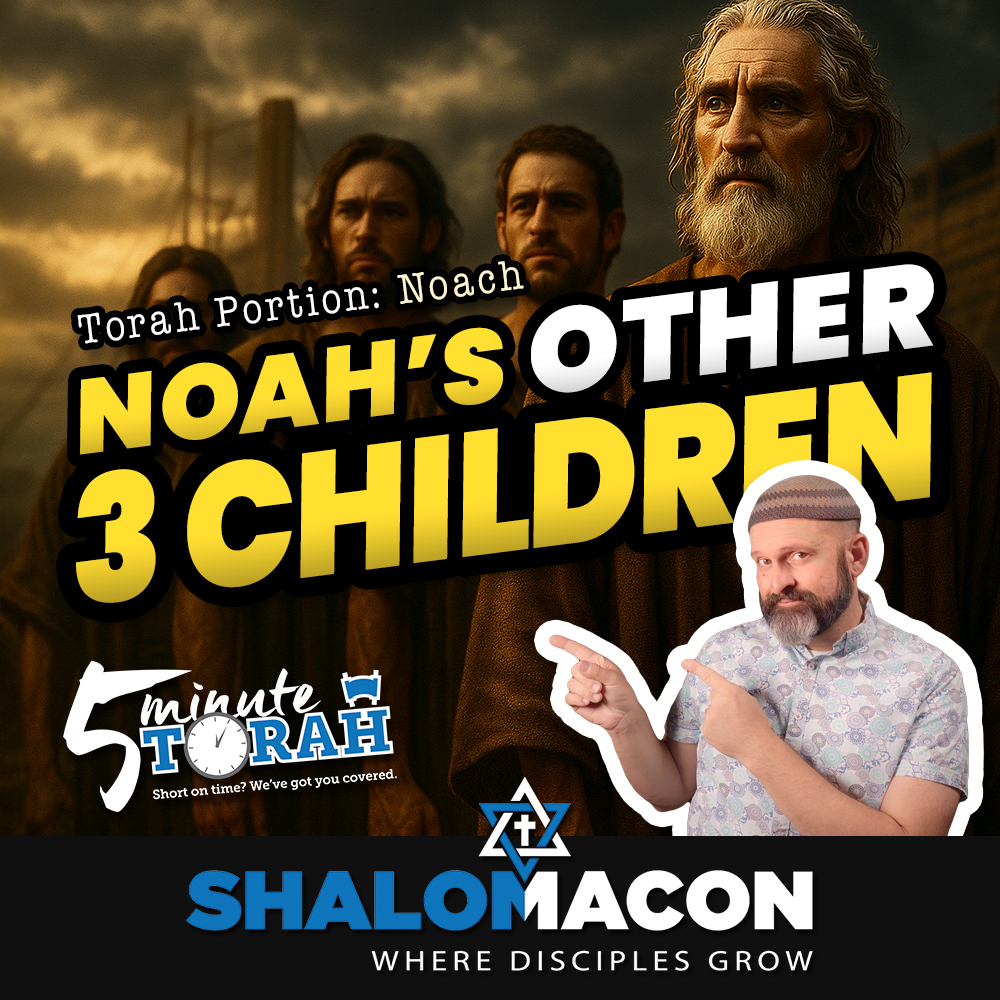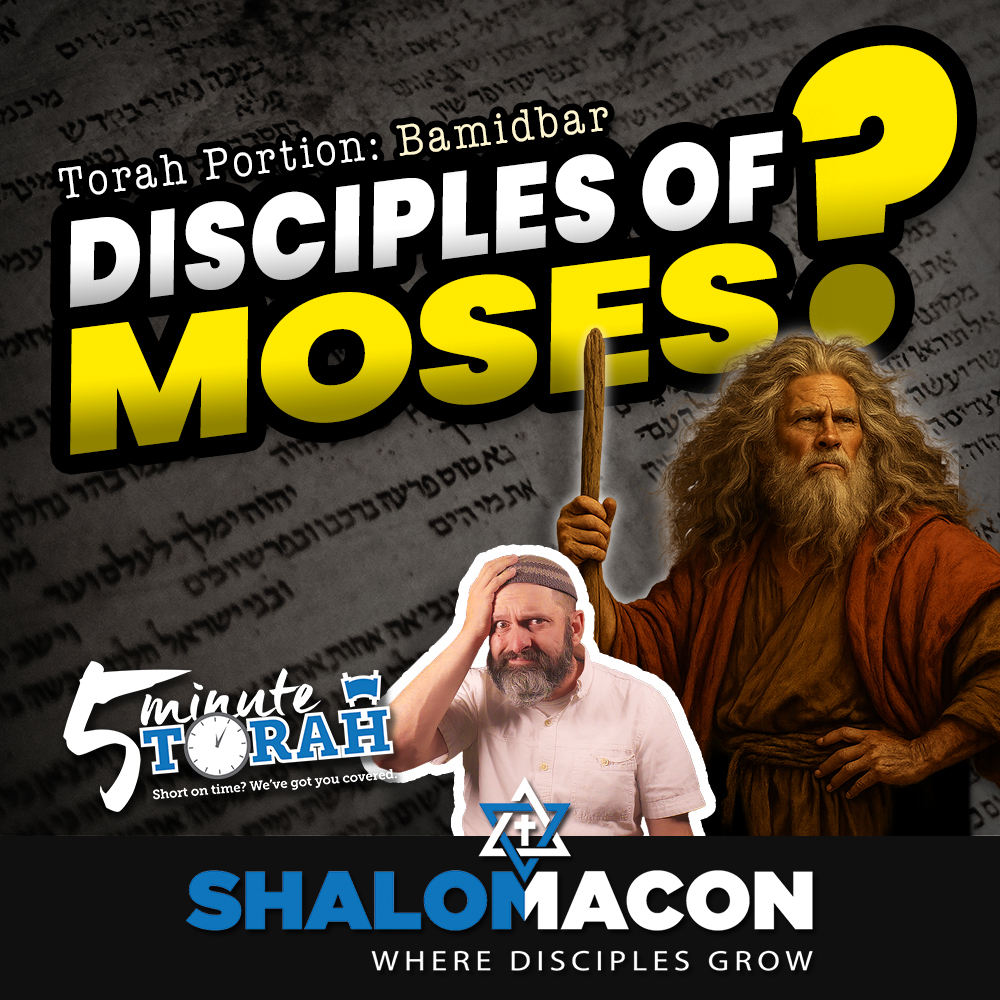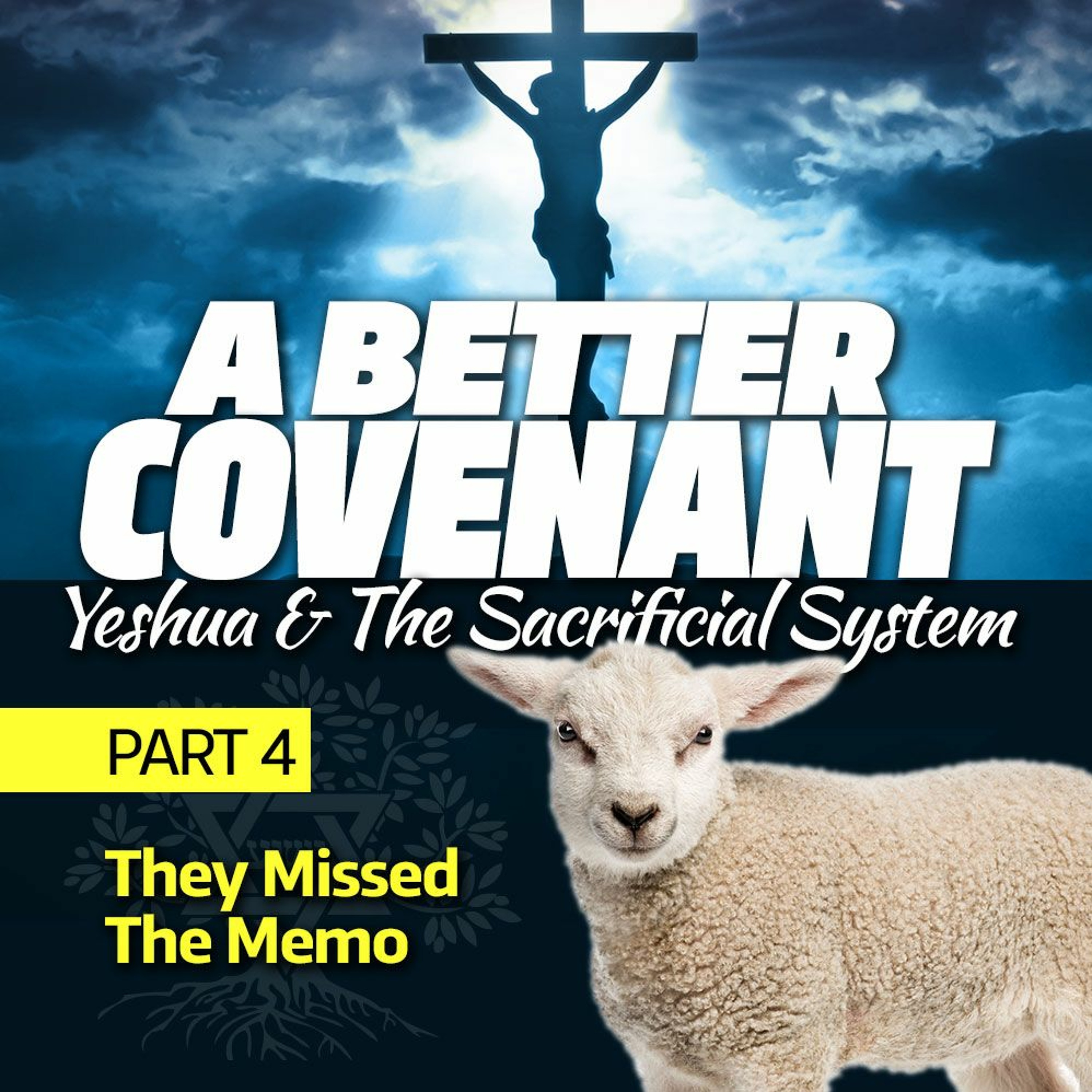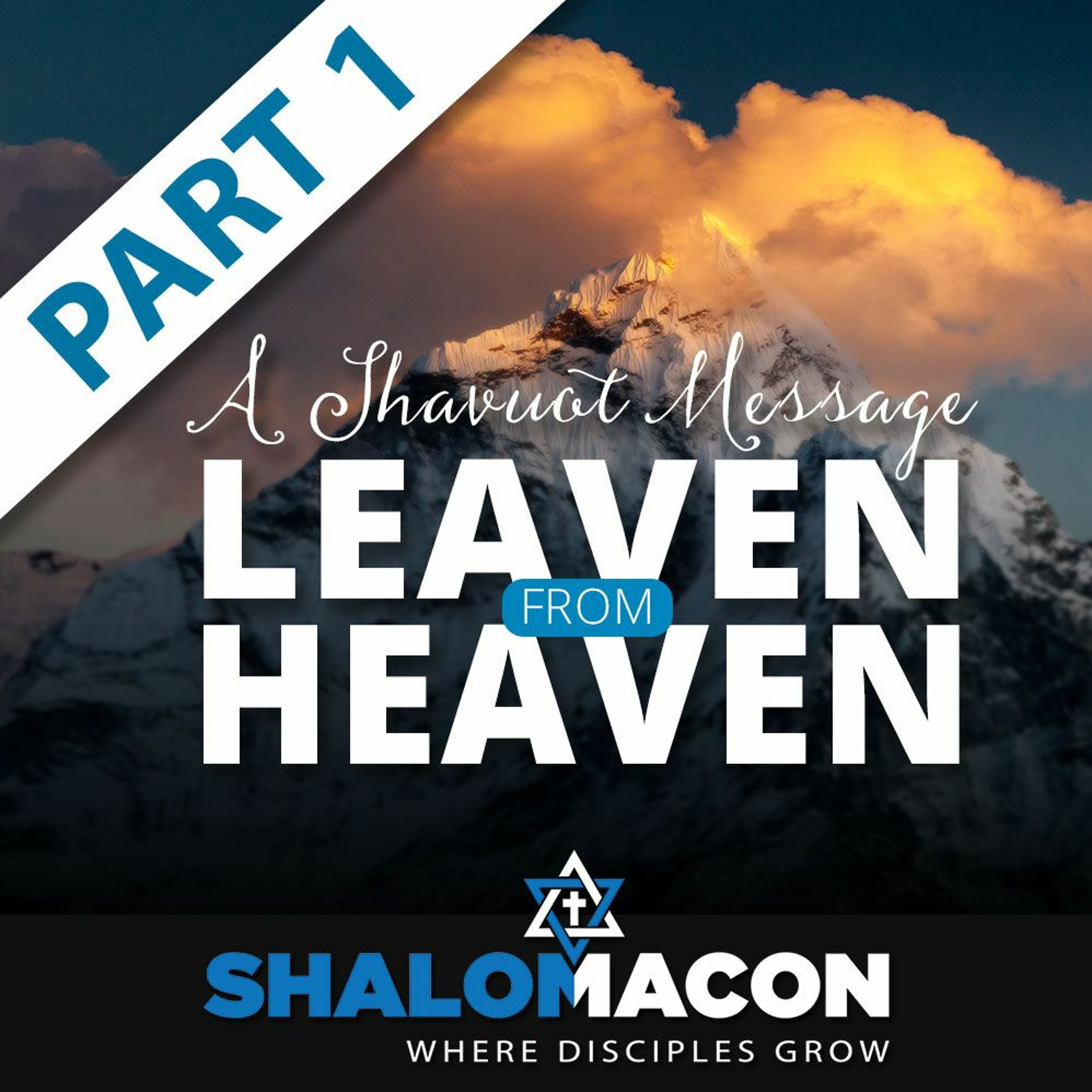Episode Transcript
[00:00:00] Everyone knows Noah had three sons, Shem, Ham, and Japheth. But the Torah hints that he had three other offspring, ones you won't find on any family tree. Join me to discover who they are and why they matter in this week's 5 Minute Torah.
[00:00:20] Shalom and blessings from Shalom Makin, the place where disciples of Yeshua learn, connect and grow. I'm Darin, and before I get into the five minutes of my five Minute Torah commentary, let's cover a few quick facts about this week's Torah portion. This week, we are studying the second Torah portion of the new Torah cycle, which is also the second portion of the Book of Genesis. We are in the portion of Noach, Genesis, 6, 9, 11, 32. And here are the three things that you need to know about it.
[00:00:46] 1. Corrupt generation. The world gone wrong. The Torah says that the earth was filled with Hamas. The violence or robbery or injustice and moral decay. Humanity had reached the point where every inclination of the heart was continually evil. The beauty of creation had been corrupted by selfishness, greed and cruelty. Yet even in this darkness, one man found favor with God. Noah's life reminds us that righteousness is most powerful when it stands alone, refusing to conform to the corruption around it. When the world forgot its creator, Noah, Noah remembered him, and that memory became the seed of humanity's renewal. Number two, the rainbow. Covenant Mercy over judgment. After the Flood, God made a covenant not only with Noah, but with all living creatures. The rainbow in the sky became the divine reminder that mercy triumphs over judgment. Each time the bow appears, it declares that God has restrained his power and chosen compassion. And instead of justice, the flood had cleansed the world. But the rainbow promised that destruction would not be the final word. It teaches us that God's justice is never separated from his grace, and that his faithfulness endures even when humanity fails to live up to its calling. And number three, the Tower of Rebellion. Unity without humility. Generations after the Flood, humanity united once again, but this time against God. Let us make a name for ourselves, they declared, building a tower that reached toward heaven. Their unity was powerful, but their purpose was corrupt. Rather than exalting their Creator, they sought to elevate their own glory. God scattered them, confusing their language to prevent pride from becoming their ruin. The Tower of Babel reminds us that unity without humility leads only to chaos. True oneness is not found in human ambition, but in aligning ourselves with the will of heaven. The new Torah cycle is about to begin. Are you ready? The five Minute Torah series is your guide to uncovering the Messianic meaning within each week's Torah portion. In just five minutes, you'll discover how the Torah connects to your life as a disciple of Yeshua with insights that are both practical and deeply spiritual. Each volume is filled with connections to the teachings of Yeshua and the apostles, showing how the words of the Torah in the New Testament form one unified message. The Whether you're just beginning your Torah journey or you've been studying for years, these books will deepen your understanding and strengthen your walk with Messiah. All three volumes are available now, covering the entire Torah cycle from start to finish. Don't wait. Order yours today for the beginning of the new cycle. This week's Torah commentary is called Leaving a Legacy and comes From a book 5 Minute Torah Volume 1 the Torah portion of Noah opens with the words these are the generations of Noah. Noah was a righteous man, blameless. In his generation Noah walked with God. This is Genesis 6:9. In this passage, the word generations is the Hebrew word Toledot. The word toldot is most often used in the Scriptures in relationship to genealogy, since its primary meaning is descendants or offspring. For instance, toward the end of this week's Torah portion, we read, these are the generations of Shem. This is Genesis 11:10. Immediately following is a list of Shem's descendants. The pattern repeats with Terah, the father of Abraham saying, now these are the generations of Terah. This is Genesis 11:27, followed by a list of his children. The same goes for the list of the sons of ishmael in Genesis 25, etc. However, in the case of the Bible's description of Noach and a few other select individuals, rather than listing his children, his character traits are listed. The Scriptures appear to be emphasizing that more than his literal offspring, the very ones that would repopulate the world after the flood, Noah's legacy was to be found in his character. The scripture lists three offspring of his righteousness, his blamelessness, and his relationship with God. Let's briefly explore these concepts. Noah was righteous. What does this mean? Righteousness is a legal status by which one person is declared to be right in relationship with another. This means that Noah held to the standard that the Lord had given him. As it is written, the Lord tests the righteous, but his soul hates the wicked and the one who loves violence. For the Lord is righteous. He loves righteous deeds. The upright shall behold his face. This is Psalm 11:5,7. When the Lord told Noah to enter the ark, he reminded Noah of his righteousness by saying, go into the ark, you and all your household for I have seen that you are righteous before me in this generation. This is Genesis 7:1.
[00:05:31] Next, Noah was blameless. What does this mean? A person is blameless when they avoid the things that displease God. For instance, when the children of Israel were about to enter the Promised land, the Lord commanded them, saying, you shall be blameless before the LORD your God. This is Deuteronomy 18:13. He desired that they would not follow the abominations of the nations they were about to dispossess. The Lord qualifies what it means to be blameless by saying, for these nations which you are about to dispossess, listen to fortune tellers and to diviners. But as for you, the LORD your God has not allowed you to do this. This is Deuteronomy 18:14. Although there was wickedness all around him, Noah stood firm and did not succumb to the temptations to reduce his religious observance to the lowest common denominator of his environment. And last, Noah walked with God. What does this mean? God desires that his children walk with Him. The prophet Micah tells us, he has told you, O man, what is good and what does the LORD require of you, but to do justice and to love kindness and to walk humbly with your God? This is Micah chapter 6, verse 8. Walking with God is an idiom for faithfulness, as the Scripture tells us. Ephraim has surrounded me with lies and the house of Israel with deceit, but Judah still walks with God and is faithful to the Holy One. This is Hosea 11:12.
[00:06:51] Although Noah lived in a wicked generation, he was a righteous man, blameless in his generation, and he walked with God. What can we say of ourselves? Are we righteous, blameless and walking with God? How will our Toledot be remembered? If you enjoy diving into the Torah each week with me, you're going to love what we've just launched for the little ones in your life. It's called Socks on youn Table, a brand new series where Rabbi Socks brings the weekly Torah portion to children in a free, fun, faith filled way they'll never forget. Each short episode helps kids connect the stories of Scripture to everyday life, all from a Messianic Jewish perspective. So after this video, head on over to our Socks on the Table playlist and share it with your kids, your grandkids and your Shabbat group. Let's help the next generation fall in love with God's Word one pair of socks at a time.
[00:07:46] Sam.



